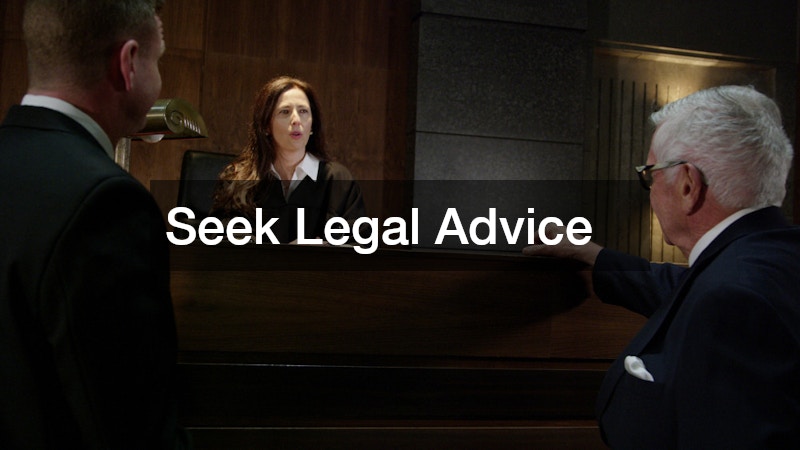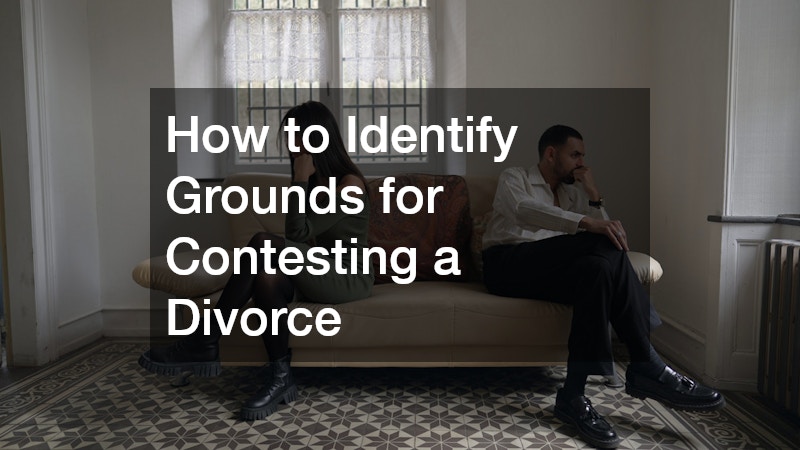Divorce can be a challenging and emotional process, and sometimes one party may feel that the outcome of a divorce is not fair. Understanding when and how to contest a divorce is an important part of protecting your rights. Grounds for contesting a divorce exist to ensure that decisions are made justly and in line with the law, especially when one party believes that the terms of the divorce do not reflect the circumstances of the marriage or the contributions of both parties. While contesting a divorce is not always straightforward, knowing the factors that courts consider can help individuals make informed decisions and seek appropriate advice.
Identifying these grounds requires awareness of the legal framework, personal circumstances and how evidence is presented. Many people assume that a divorce is final once filed, but there are legitimate situations where a divorce can be challenged. These may include disputes over property division, parenting arrangements, financial settlements or concerns that one party has not fully disclosed relevant information. By understanding your rights and the legal avenues available, you can approach the process with confidence and clarity.
Consult a Specialist

When considering contesting a divorce, it is important to consult a specialist who can guide you through the process. A divorce lawyer has the expertise to assess whether there are valid grounds for contesting a divorce and can help you understand the legal options available. They can explain how the courts typically view contested cases, provide advice on gathering the necessary evidence and offer practical guidance to prepare you for each step. A specialist also helps clarify timelines and procedural requirements, which can reduce stress and prevent mistakes that might impact your case.
When considering contesting a divorce, it is important to consult a specialist who can guide you through the process. A divorce lawyer has the expertise to assess whether there are valid grounds for contesting a divorce and can help you understand the legal options available. They can explain how the courts typically view contested cases, provide advice on gathering the necessary evidence and offer practical guidance to prepare you for each step. A specialist also helps clarify timelines, procedural requirements and potential outcomes, which can reduce stress and prevent mistakes that might impact your case. A divorce lawyer can also provide guidance that is tailored to your specific circumstances.
Understand the Rules

Understanding the rules that govern divorce is essential for anyone considering contesting the decision. Family law sets out the legal criteria for how divorces are finalised and the circumstances under which they can be contested. By familiarising yourself with these principles, you gain insight into what courts consider when reviewing a case. This knowledge helps you navigate the process more confidently, make informed choices at each stage and ensures you are aware of your responsibilities and rights throughout the proceedings.
In practice, family law provides the framework for resolving disputes over property, finances and children. Courts often look at whether both parties have acted in good faith, been honest throughout the process and disclosed all relevant information. Knowing these rules allows you to identify potential issues, such as unequal financial settlements or unfair parenting arrangements, that may form the basis for grounds for contesting a divorce. Understanding the law also helps you prepare documentation and evidence that support your position, anticipate possible challenges, plan effectively and strengthen your case.
Seek Legal Advice

Seeking legal advice is a critical step when determining whether to contest a divorce. Lawyers play a vital role in helping individuals navigate the complexities of contested cases. They can provide guidance on procedural steps, the documentation required and how to communicate effectively with the court. Accessing professional advice ensures that your approach is legally sound and that your interests are represented appropriately throughout the process.
Legal advice is particularly valuable when dealing with complex or sensitive matters. Lawyers can help you gather evidence, such as financial records or communications, that may support your claim. They can also explain the likelihood of success based on similar cases and help you anticipate potential challenges. By working with a lawyer, you increase your chances of presenting a well-prepared case in a structured and credible way, ensuring all relevant details are considered and your position is clearly communicated to the court.
Identifying grounds for contesting a divorce requires knowledge, preparation and professional guidance. By consulting a specialist, understanding family law and seeking legal advice, you can make informed decisions and take steps that protect your rights. Contesting a divorce is not about prolonging conflict but ensuring that the outcome is fair and reflects the circumstances of both parties. With careful preparation and the right support, individuals can navigate this challenging process confidently, manage potential obstacles effectively and achieve an outcome that aligns with legal standards and personal interests.
